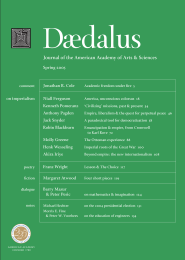Empire & ‘civilizing’ missions, past & present
‘Imperialism’ is a frustratingly vague term, but a useful one–and not only for outside observers and protesting subjects.1 Historically, rulers have often sought to make their empires visible as such by following regional–and in recent centuries, global–standards for acting imperially. Even the past century, in which empires often shunned that designation, is only a partial exception.
Imperialism is also topical. While some compare the contemporary United States to imperial Rome, more analysts see it as the latest of a series of military-mercantile hegemons that set the rules for their eras’ global political economies. Depending on where they locate the start of the world economy, some stretch that series back many centuries, while most identify only an Anglo-American succession spanning two centuries of liberal industrial capitalism. Others mark out the last two hundred years for a different, though complementary, reason: as an era in which Western empires, influenced by the Enlightenment, cast themselves as agents of progress.
In this essay I will also emphasize the self-assigned ‘civilizing’ mission of modern empires, but will argue that the twohundred-year, Atlantic-centered framework is both too narrow and too broad. On the one hand, civilizing empires have emerged outside the Enlightenment West; an East/West dichotomy often proves less useful than one between contiguous and overseas empires. On the other hand, since the 1970s the American government’s approach to ‘development’ and ‘nation building’–the twentieth-century version of ‘civilizing’–has broken with basic ideas about how empire could confer benefits on subject peoples that had evolved over the previous two centuries. This makes today’s American empire different both in word and deed.
In empires, leaders of one society rule directly or indirectly over at least one other society, using instruments different from (though not necessarily more authoritarian than) those used to rule at home. For empires, varied kinds of rule are not just concessions to large spaces and limited means, but appropriate to differences among their subject peoples. Many contemporary states rule less accessible regions very differently from their capital districts, but this is considered a temporary failing; in theory, nations should have one kind of government and citizen from border to border. Empires, by contrast, may plan to modify differences among their domains, but not to extinguish them.
. . .
Endnotes
- 1My thanks to Walter LaFeber, Robert Moeller, Jeffrey Wasserstrom, and R. Bin Wong for exceptionally helpful comments on earlier drafts of this essay, and to Mark Elliott for clarifying specific questions of Qing frontier policy.
